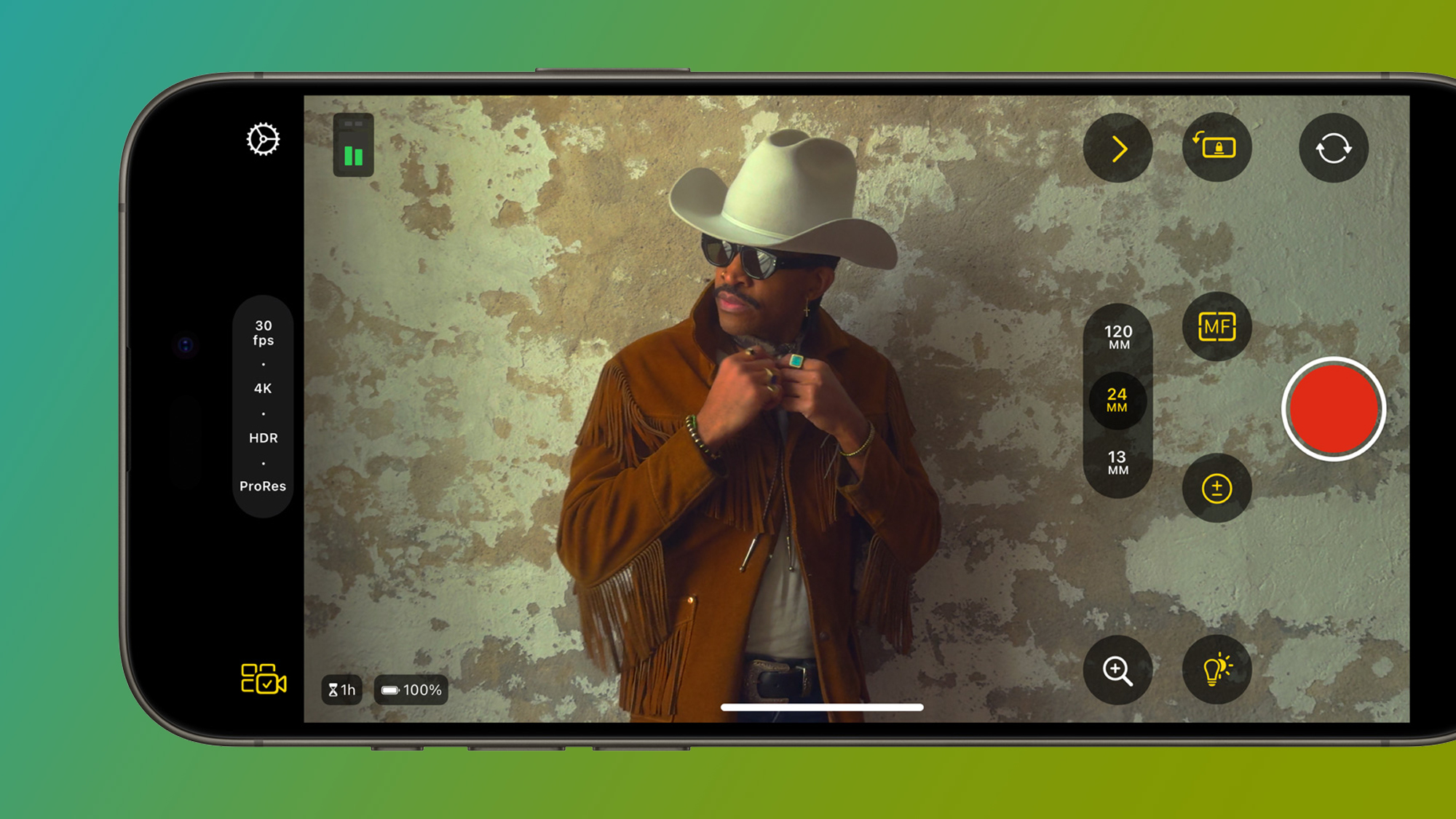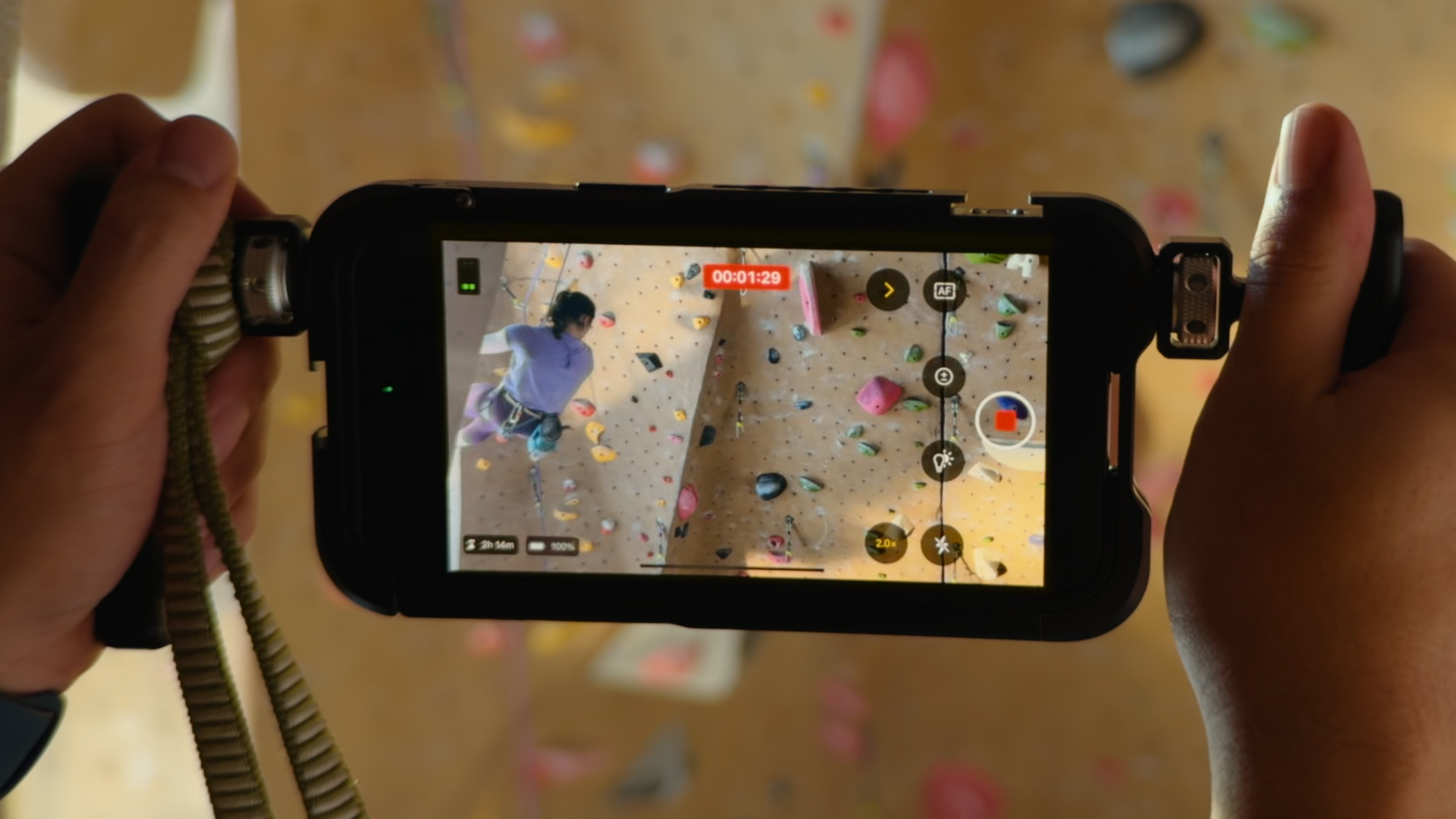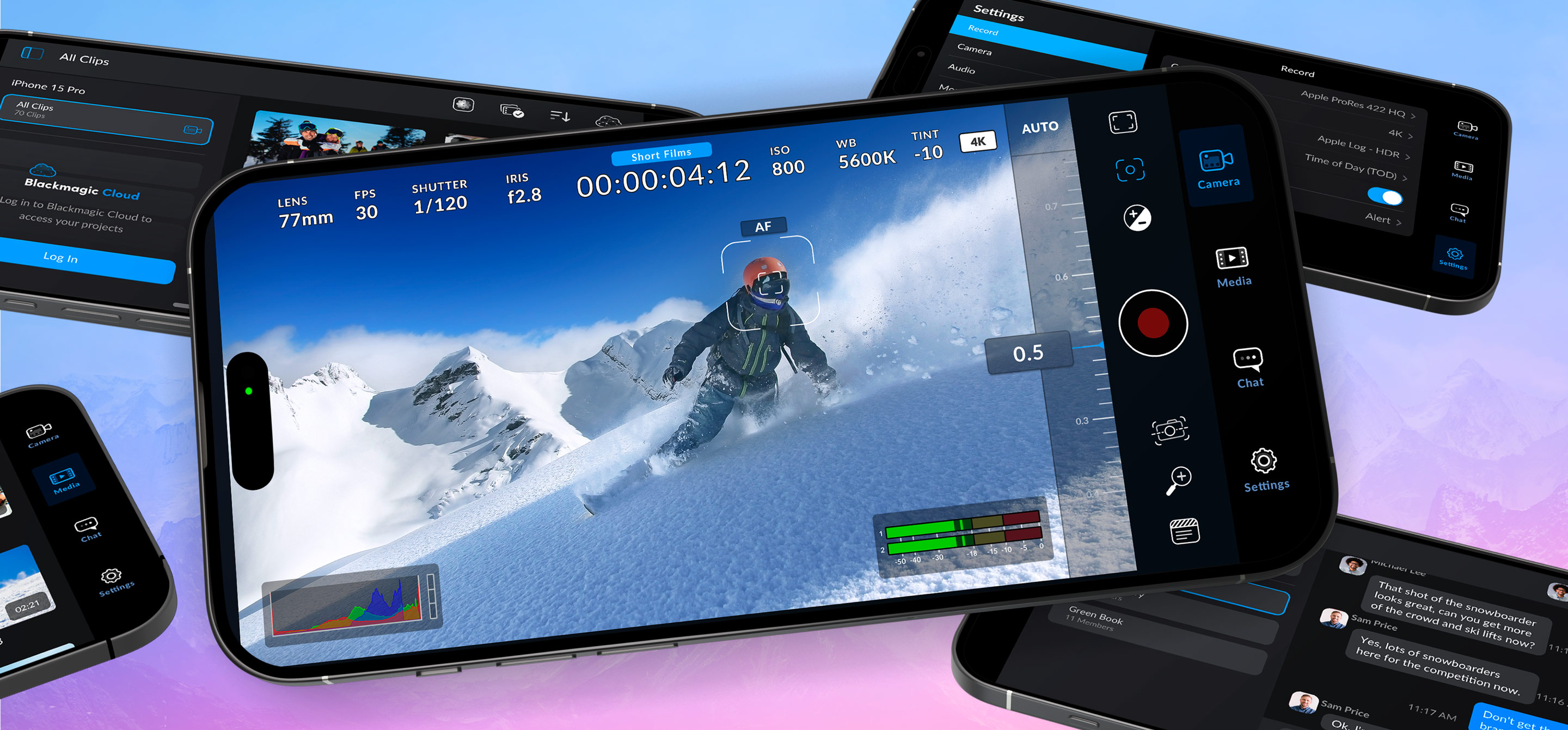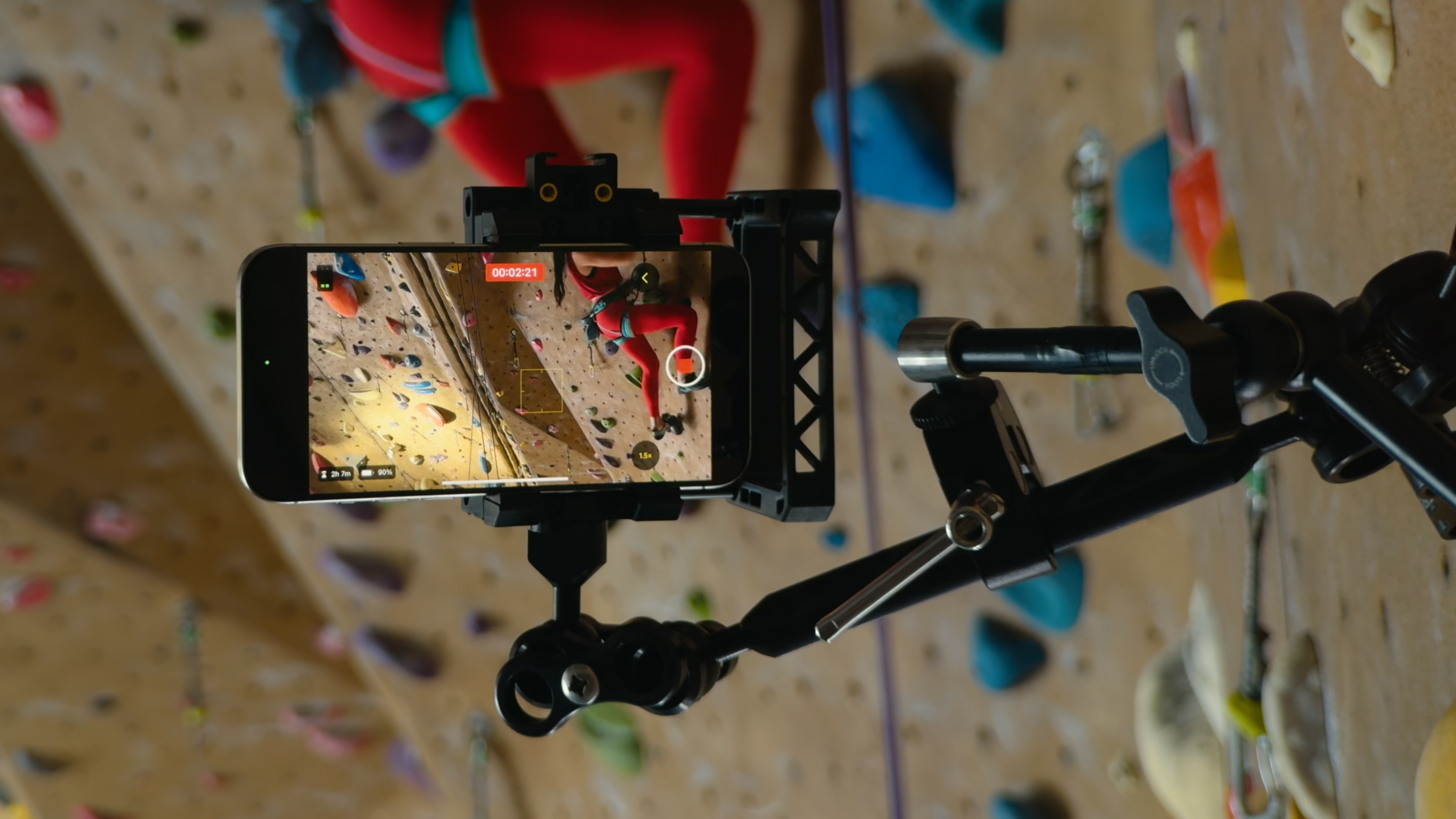Apple’s new Final Cut Camera app looks great for shooting video – but I'd still love a photography equivalent
Could Apple make a photography equivalent of Final Cut Camera?

Buried in this week's flurry of Apple announcements for the iPad Pro (2024), M4 chip and Apple Pencil Pro was some fascinating news for video shooters – an updated 'Final Cut Pro for iPad 2' app and an even more intriguing app, for both Apple's tablets and the iPhone, called Final Cut Camera.
What's particularly interesting about Final Cut Camera is that it's designed to both work as a standalone app for shooting video, and also in tandem with that clunkily-named new Final Cut Pro editing app. When working with the latter, it introduces multi-cam capabilities when shooting video on iPads and iPhones.
Multi-cam functionality has been around for a little while now, with Blackmagic and LumaFusion paving the way for a new mobile way of filming and editing videos. This has represented a significant shift for the industry and it’s great to see Apple weighing in with their own solution.
After using LumaFusion, I’m really looking forward to seeing how Apple’s offering compares – the app is due out "later this spring" (in other words, sometime before the end of June) and will cost $4.99 / £4.99 / AU$7.99 a month. But it's Apple's free app Final Cut Camera, that's arguably more interesting – particularly as it's separate from the iPhone's standard Camera app.
Final Cut Camera delivers pro video controls to iPhones and iPads, letting video shooters to take control of fine-tuning settings – and also combining up to four different video feeds from those devices, live-cutting between them.
Until now, Apple has left this kind of thing to third-party app makers – but if it can do it for video, there's no reason it might not also do the same for photography, too.
What does Final Cut Camera do?
Through this free standalone app, which will also land "later this spring" (sometime by mid-June), it'll be possible to adjust a whole host of pro video settings – and also sync your live video feed to an iPad running the Final Cut Pro 2 app.
Those settings include ISO, shutter speed, white balance, focus and more, to help you get professional-grade recording. The interface even lets videographers monitor incoming footage with a zebra stripe pattern tool and audio meter. Doing all this across up to four cameras would be a hassle with an iPhone – not to mention impossible without at least an M1 chip – which means a relatively recent iPad is essential for the multi-cam workflow.

The multi-cam feature, which you get when using Final Cut Camera in tandem with the Final Cut Pro 2, instantly turns a group of Apple devices into a mini production studio. This makes it possible for any iPhone user to take ultimate control of their video capture and for more complex setups to all be controlled from a single device.
Everything is, of course, wireless, which makes for a super straightforward setup on the ground. The seamless syncing of both video and audio also dramatically streamlines editing workflows and allows videographers to turn projects around in a fraction of the time.

What has been possible with the Blackmagic Camera App for a while is now possible with Final Cut Pro and Apple tech.
Looking at the two apps side by side, it’s clear how similar they are in terms of functionality. Both offer manual control over the lens but Blackmagic provides a much greater level of audio data as well as an RGB histogram.
The Final Cut Camera App follows all of Apple's design rules, which looks great but I can’t help but feel that providing a little more data to users would have been helpful. Perhaps it's filling a gap in between the stock Camera app and a truly pro option like the Blackmagic Camera app.
Will Apple make a pro photo app?
It's a shame that Apple's new Final Cut Camera app doesn't also include photography controls or functionality. But I hope this means we'll also see a photo-leaning equivalent of the app, maybe even around WWDC 2024.
The default Apple Camera app has been substandard, for keen shooters at least, for a long time now and many have turned to the likes of Halide for more pro control over their photos. But a free alternative would be a nice partner to the Final Cut Camera app.
Not everyone would need it – for most iPhone users, the point-and-shoot experience of the stock Camera app is fine. But being given full access to ISO and shutter speed settings, plus visualization tools like a histogram or zebra stripes are all very handy if you're looking to shoot in raw and maximize image quality.

If Apple does decide to do something on those lines, it'd that be another app to go alongside Final Cut Camera. Final Cut has always been video-focused and Apple has been loathe to clutter its stock Camera app with new controls, even within a sub-menu.
For now, the release of multi-cam functionality and a dedicated video camera app is a great step forward. It puts Apple on a par with LumaFusion and BlackMagic and makes for a very exciting and competitive video space on iPhones and iPads. In this area at least, the best Android phones are playing catchup.
You might also like
Get daily insight, inspiration and deals in your inbox
Sign up for breaking news, reviews, opinion, top tech deals, and more.
Paul is a digital expert. In the 20 years since he graduated with a first-class honours degree in Computer Science, Paul has been actively involved in a variety of different tech and creative industries that make him the go-to guy for reviews, opinion pieces, and featured articles. With a particular love of all things visual, including photography, videography, and 3D visualisation Paul is never far from a camera or other piece of tech that gets his creative juices going. You'll also find his writing in other places, including Creative Bloq, Digital Camera World, and 3D World Magazine.